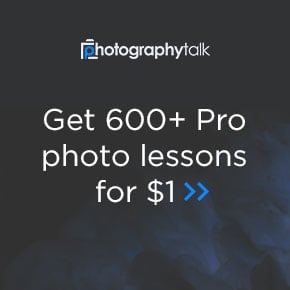- Forum
- Photography and Camera Forum
- Taking the Photo | Editing | The art of Photography!
- Tips and Taking Photos
- Light, composition, or subject. Landscape Photography
Light, composition, or subject. Landscape Photography
-
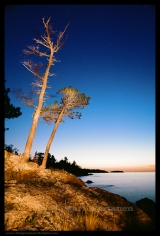 Topic Author
Topic Author
- Karl Wertanen
- The Lounger
-
- Mamiya 7II Medium Format 6x7 Rangefinder Film Camera, Mamiya RZ67 Pro II Medium Format 6x7 Film Camera, and a few Minlolta Maxxum 35mm Film cameras
- Followers: 220
- Posts: 1342
-
Points:
10
Post #91417
Good light takes planning and patience, good subject takes planning and the effort and patience to search out the right subject to photograph, and composition is something that is a little harder to come by. Composition takes lots of practice, visual study of lines, shapes, an textures, and a certain vision that is usualy constructed and formed from with in ones self. I believe composition is more on the "art" side of things and what makes a photographer an "artist", and in my humble opinion, and as the writer of the article believes, composition is the key.
After you master composition, and when you can put all these ingredietns together, and you get that 1 stunning photograph that's so hard to come by, and you can repeatedly bring all 3 together, i think it can all be directly related too, and summed up in one word. It might be something different for other people, but for me the word is "discipline". If you dont have that discipline, you'll end up with one or more of the combinations described and shown in this article, and a slightly subpar photograph that feels like it's just missing something....
For me, discipline in realtion to subject is scouting out your shot, even if that means returning to the same place multiple times. Discipline in relation to light is getting up early enough in the morning to set up that perfect shot and having the patience to wait for the right light before you snap ta single picture.... even if that means you dont take a single shot because the light didnt happen. Discipline in composition is always using a tripod and fine tuning every technical aspect of the subject in front of you and strategicly placing it in your frame. Discipline is taking a small series of pictures when everything comes together instead of 600 pictures over the course of an hour.
If anybody has anything else to add to this, or if i left anything out, please feel free to add it. There are alot of skilled photographers on this site who i know have very valid points and visions to contribute.
Sorry for babbeling on and on lol, my mind got away from me.
Here is the article.
www.landscapegb.com/2011/06/light-compos...ontent=Google+Reader
-

- Nikonjan
- Master of the Lens
-
- Nikon D300
- Followers: 142
- Posts: 1566
-
Points:
0
Post #91419
www.betterphoto.com?nikonjan
-

- mj~shutterbugg
- The Lounger
-
- Canon 5d Mark iii; Canon 5D Mark ii; Canon 10D IR converted
- Followers: 46
- Posts: 1390
-
Points:
10
Post #91429
-

- Nikonjan
- Master of the Lens
-
- Nikon D300
- Followers: 142
- Posts: 1566
-
Points:
0
Post #91431
mj~shutterbugg wrote:

and this is why I am still a student. I lack discipline. I lack it in most areas of my life as well. If I could wish for one trait it would be self discipline.
www.betterphoto.com?nikonjan
-
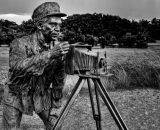
- McBeth Photography
- Photo Guru
-
- Sinar Norma 4x5
- Followers: 365
- Posts: 3870
-
Points:
1295
Post #91443
Nikonjan wrote:
mj~shutterbugg wrote:

and this is why I am still a student. I lack discipline. I lack it in most areas of my life as well. If I could wish for one trait it would be self discipline.
I have the problem of not getting up early for morning shots.
Ditto! Me too!
It is what it is.
-

- Rob pix4u2
- Photo Guru
- Nikon N90s & FE film & D90 and D90 digital bodies
- Followers: 196
- Posts: 4204
-
Points:
30
Post #91455
Hope Y'all enjoy these samples of the early morning pix we have gotten out of bed to shoot
Remember to engage brain before putting mouth in gear
Rob Huelsman Sr.
My Facebook www.facebook.com/ImaginACTIONPhotography
-
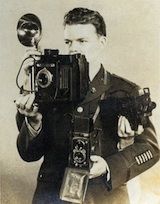
- MLKstudios
- Banned
-
- D800 ;-)
- Followers: 72
- Posts: 4480
-
Points:
2
Post #91571
HP posted a Stieglitz quote on another thread. To paraphrase: Doing it (photography) because you love what you do often creates better images than possessing the "pro" monicker.
I totally agree that composition separates a good from a great photo. However, I teach the "rules" of composition later in my program so as not to stifle one's own sense of "balance". I find when you cover the "third rule" too early, they (my students) tend to shoot EVERYTHING using it, when it isn't always the best choice. I'd rather see them evolve using their own visual sensibilities than weighing them down with "rules" early on.
But, I do cover them eventually as they DO WORK most of the time.
Matthew
PS it takes them ALL to make a great image -- light, comp AND subject -- and timing, and hard work, and sometimes luck.
Matthew L Kees
MLK Studios Photography School
www.MLKstudios.com
[email protected]
"Every artist, was once an amateur"
-
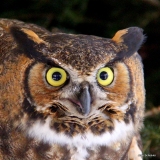
- Baydream
- Moderator
-
- Canoni/60D/70D/5DmkIII
- Followers: 388
- Posts: 11185
-
Points:
7280
Post #91609
The getting up early gets harder all the time, but Rob has shown us the value. here are my contributions.McBeth Photography wrote:
Nikonjan wrote:
mj~shutterbugg wrote:

and this is why I am still a student. I lack discipline. I lack it in most areas of my life as well. If I could wish for one trait it would be self discipline.
I have the problem of not getting up early for morning shots.
Ditto! Me too!
That said, composition is the number one item to learn about photography. Most cameras can make an educated guess at settings but CAN NOT compose a shot. So learn to "look" at the world through that rectangular "hole" and you will get better photos sooner.
Artists in other disciplines learn this concept early in their training.
Some may teach the mechanics first but until you grasp composition, you will never get those great shots.
Shoot, learn and share. It will make you a better photographer.
fineartamerica.com/profiles/john-g-schickler.html?tab=artwork
-

- Rob pix4u2
- Photo Guru
- Nikon N90s & FE film & D90 and D90 digital bodies
- Followers: 196
- Posts: 4204
-
Points:
30
Post #91633
Remember to engage brain before putting mouth in gear
Rob Huelsman Sr.
My Facebook www.facebook.com/ImaginACTIONPhotography
-

- MLKstudios
- Banned
-
- D800 ;-)
- Followers: 72
- Posts: 4480
-
Points:
2
Post #91635
Take a look a Leiter's work on Vimeo.
Another 2¢
vimeo.com/18304674
Matthew L Kees
MLK Studios Photography School
www.MLKstudios.com
[email protected]
"Every artist, was once an amateur"
-

- Rob pix4u2
- Photo Guru
- Nikon N90s & FE film & D90 and D90 digital bodies
- Followers: 196
- Posts: 4204
-
Points:
30
Post #91639
Remember to engage brain before putting mouth in gear
Rob Huelsman Sr.
My Facebook www.facebook.com/ImaginACTIONPhotography
-

- Baydream
- Moderator
-
- Canoni/60D/70D/5DmkIII
- Followers: 388
- Posts: 11185
-
Points:
7280
Post #91667
Shoot, learn and share. It will make you a better photographer.
fineartamerica.com/profiles/john-g-schickler.html?tab=artwork
-
 Topic Author
Topic Author
- Karl Wertanen
- The Lounger
-
- Mamiya 7II Medium Format 6x7 Rangefinder Film Camera, Mamiya RZ67 Pro II Medium Format 6x7 Film Camera, and a few Minlolta Maxxum 35mm Film cameras
- Followers: 220
- Posts: 1342
-
Points:
10
Post #91693
-

- Baydream
- Moderator
-
- Canoni/60D/70D/5DmkIII
- Followers: 388
- Posts: 11185
-
Points:
7280
Post #91751
From the discussion, I would say you got your point across - and started a darn good thread.Karl Wertanen wrote: I just realized that i didnt finish my thought on the first paragraph... lol

, i just put in the final sentence that was missing... i think you all got what i was trying to say though.
Shoot, learn and share. It will make you a better photographer.
fineartamerica.com/profiles/john-g-schickler.html?tab=artwork
-
 Topic Author
Topic Author
- Karl Wertanen
- The Lounger
-
- Mamiya 7II Medium Format 6x7 Rangefinder Film Camera, Mamiya RZ67 Pro II Medium Format 6x7 Film Camera, and a few Minlolta Maxxum 35mm Film cameras
- Followers: 220
- Posts: 1342
-
Points:
10
Post #91803
MLKstudios wrote: It most definitely is a discipline. And how you feel about your work translates to how others will feel about it.
HP posted a Stieglitz quote on another thread. To paraphrase: Doing it (photography) because you love what you do often creates better images than possessing the "pro" monicker.
I totally agree that composition separates a good from a great photo. However, I teach the "rules" of composition later in my program so as not to stifle one's own sense of "balance". I find when you cover the "third rule" too early, they (my students) tend to shoot EVERYTHING using it, when it isn't always the best choice. I'd rather see them evolve using their own visual sensibilities than weighing them down with "rules" early on.
But, I do cover them eventually as they DO WORK most of the time.
Matthew
PS it takes them ALL to make a great image -- light, comp AND subject -- and timing, and hard work, and sometimes luck.
I think what i'm getting at is that light and subject can be learned and composition is more of an organic "vision" that comes from, and develops from within. I think composition can be taught only to a certain point. Not everybody sees the same way (when following the same compositional "rules"). For some, that inner vision comes naturally, and others can go half a lifetime before they begin to "see" in their own vision.You look at many of the greats and you can see certain patterns, characteristics, or a certain personality in their work that actually adds the artists signature w/out the artist actually signing their work. I guess what i mean is, that it is through composition, that the photographer (artist) makes a photograph more than just a photograph. I think that "vision" is truly human and an organic atribute.
I do understand what you mean when you mentioned "they (my students) tend to shoot EVERYTHING using it". I can definitely see that happening. I think that when that vision begins to form, it's the most rewarding to replicate and fun to play with , and when learning, it's too easy to fall victim to that "tunnel vision" and not not pay as much attention to the lighting and subject technicalities of taking a photograph. good point
- Forum
- Photography and Camera Forum
- Taking the Photo | Editing | The art of Photography!
- Tips and Taking Photos
- Light, composition, or subject. Landscape Photography
Latest Reviews
The Olympus Pen E-P7 is an affordable micro four thirds mirrorless camera with 4K video capabilities, a 20.3MP sensor, and 121 focus points, making it a solid entry-level camera for beginners.
The Panasonic G9 II is a 25.2-megapixel micro four thirds camera with numerous features that make it punch out of its weight class, like 779 AF points, 5.8K video, and weather sealing.
The Fujifilm XT5 is a 40MP mirrorless camera capable of 6.2K video at 30p. With those specs, it’s an ideal choice for photographers needing a camera to pull double duty for imaging and video.
The Canon EOS R100 is an entry-level mirrorless camera introduced in 2023. But just because it’s an entry-level camera doesn’t mean it’s a bare-bones camera. Find out why in this review!
Forum Top Posters
-
1amandadams 1 post
Latest Articles
Upgrade your kit in 2024 with the best intermediate camera on the market! The question is, what camera fits the bill? We’ve got three top options for you to choose from in this buyer’s guide.
The best photography jobs right now are a mix of tried-and-true gigs like wedding photography and new jobs highlighting AI’s capabilities, travel, and videography.
The Olympus Pen E-P7 is an affordable micro four thirds mirrorless camera with 4K video capabilities, a 20.3MP sensor, and 121 focus points, making it a solid entry-level camera for beginners.
Starting a photography business is one thing; sustaining your business over a long period of time is another. Use the tips in this professional photography guide to build something with longevity!
The Panasonic G9 II is a 25.2-megapixel micro four thirds camera with numerous features that make it punch out of its weight class, like 779 AF points, 5.8K video, and weather sealing.
Cinematic photography is an interesting genre that combines photographic and videographic skills along with effective storytelling techniques. The result? Highly impactful images!
Newborn photography requires skill, the right gear, and a lot of patience. This beginner’s guide discusses critical topics that will help you be more prepared for before, during, and after the shoot.
To fill the frame means to expand the footprint of the subject in your shot. Get in close, zoom in, crop the image, or use other techniques to bring the subject to the forefront.


















